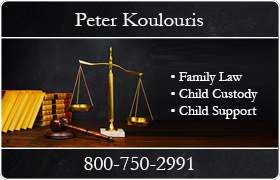 Victor Divorce & Family Law Lawyers, California
Victor Divorce & Family Law Lawyers, California
Sponsored Law Firm
-
 x
x

Click For More Info:
Contact Us -
Stockton Law Center, LLP
5651 North Pershing Ave., Suite B2, Stockton, CA 95207 » view mapChild Support, Child Custody, and More San Joaquin Family Lawyer
My clients can expect to be treated with dignity, respect and empathy by a lawyer who views himself as just a regular person whose primary goal is to solve problems.
800-750-2991  Peter Koulouris Stockton, CA
Peter Koulouris Stockton, CAAttorney At Law - CA, 1994
Humphreys College, J.D.
 Contact UsEmail or Call 24/7
Contact UsEmail or Call 24/7Call us today!
Lawyers
1-2 of 2 matches
Estate Planning, Trusts, Mediation, Family Law
Family Law, Divorce, Divorce & Family Law, Personal Injury, Accident & Injury





 Peter Koulouris Stockton, CA
Peter Koulouris Stockton, CA Contact UsEmail or Call 24/7
Contact UsEmail or Call 24/7